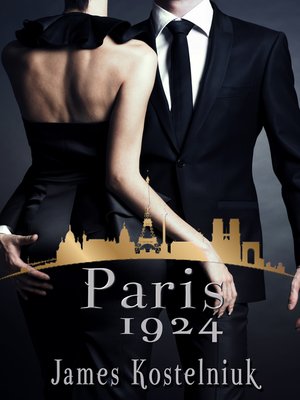
Sign up to save your library
With an OverDrive account, you can save your favorite libraries for at-a-glance information about availability. Find out more about OverDrive accounts.
Find this title in Libby, the library reading app by OverDrive.



Search for a digital library with this title
Title found at these libraries:
| Loading... |
In the summer of 1924, the City of Light is a vortex of hedonism and creative energy, drawing people from around the world to a celebration that lasts a decade. Lady Penelope Young, disenfranchised by her wealthy aristocratic parents, has fallen in love with American foreign-correspondent Herbert Spencer, who was wounded and made impotent in the Great War. Paris is a feast of food and drink, and together they enjoy making the rounds of smoky jazz clubs, sidewalk cafés, parks and museums. They're close but not intimate, she being frustrated by his impotence. He has a strict traditional view of marriage and sexuality—she is more free-spirited, adventurous and open-minded. He dreams of being a great novelist—she supports his dream. He publishes a novel, moves to the Riviera and continues writing. She stays in Paris and visits him occasionally. He recovers from his war wound—they make love, but he disappoints her deeply by falling instead for the wealthy Irish heiress, Laura O'Hara, a bisexual still involved with an African/American exotic dancer named Wanda Jones.
After he marries Laura O'Hara, Herbert Spencer is overtaken by a dynamic sexual energy and an imagination far greater than his own. To make matters worse, Laura persuades him to bring her former lover, Wanda, into their marriage.
Penelope's hopes are raised when she learns that Spencer's marriage is competitive, confused and unhappy. When she inherits a fortune after her father's death, she buys a yacht and makes an elaborate plan to get him back. Can she succeed?






